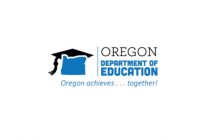Oregon Senator Jeff Merkley and Senator Al Franken (D-MN) introduced legislation designed to increase student access to courses in STEM education subjects and provide additional resources to recruit, train, and support teachers of these subjects. “Whether we’re inventing new life-saving medications, or creating new technologies for connecting people, or building the next generation of energy-saving infrastructure, increasingly America’s jobs rely on innovation,” Merkley said.
“Science, technology, engineering, and math are the heart of innovation, and we need to make sure our schools are preparing kids to be tomorrow’s innovators. We can’t succeed with a 20th century education policy in a 21st century economy, which is why STEM education is so critical.”
“Right now, our nation is facing a ‘skills gap’ that has left millions of jobs unfilled because there aren’t enough workers with the skills to fill them,” Franken said. “When students graduate, they need to be ready to fill those high-skilled jobs, so it’s critical that we make strong investments in STEM education. As a member of the Senate Education Committee, one of the things I’m focused on is making sure teachers in the STEM fields have the resources they need to equip our students to be competitive in a global economy. ”
“In today’s economy, every student needs a strong foundation in the STEM fields in order to succeed in virtually any job – from the shop floor to the research lab to the board room,” said James Brown, the Executive Director of the STEM Education Coalition. “The STEM Education for the Global Economy Act of 2015 is a strong step in ensuring every state and every student has the resources they need to get a strong education in the critical STEM fields. We look forward to working to working with Senators Merkley and Franken and their colleagues in the Senate to include this legislation in the pending reauthorization of the Elementary and Secondary Education Act.”
The legislation that Senators Merkley and Franken introduced today will help improve student achievement in STEM education by improving instruction in STEM subjects. The legislation aims to:
• Improve student engagement in, and increase student access to, courses in STEM subjects;
• Recruit, train, and support highly-effective teachers in STEM subjects and provide robust tools and supports for students and teachers;
• Close student achievement gaps, and prepare more students to be on track to college and career readiness and success in these subjects.
Merkley and Franken will seek to include the bill in the Senate’s re-write of the No Child Left Behind Act this year. The bill is endorsed by the STEM Education Coalition, an alliance of more than 500 businesses and professional and education organizations.





